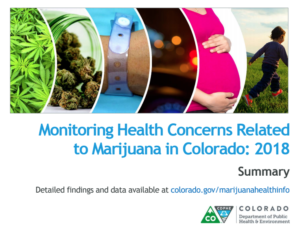
Quick update: my newest float nurse training has been in endocrinology. Whenever I train in a new specialty, I am once again reminded of the sheer complexity of the human body. Just when I think I have begun to grasp a certain specialty area of medicine, I am jolted to a new specialty that has an altogether different body of underlying knowledge, prevalent diseases, and treatment courses. In endocrinology, the patient population is primarily those suffering from one of three conditions: osteoporosis, thyroid dysfunction, or diabetes mellitus (although we often see patients for any number of hormone issues). I’ve enjoyed delving into a new area of medicine, and you can bet that I’m always asking the doctors and nurses questions about why or how because, hey. I’m curious! Not to mention I get to observe in-office infusions for patients receiving Reclast, a medication to help treat bone loss. You might not think it’s that exciting, but I’m pretty geeked to add more skills to my tool belt.
On the days that I’m not in endocrinology, I’m covering for nurses in obstetrics/gynecology. As I bring patients back to the exam rooms and begin my assessment, I often roll off a series of questions, including questions regarding the patient’s tobacco use, alcohol use, and caffeine intake.
For pregnant patients, this is an extremely important part of the assessment since a “yes” to any of these questions could affect the unborn baby quite significantly. It’s also good information to know for a gynecology patient since tobacco and drug use affects the general overall health of the woman as well.
Questioning the patient about her recreational drug use has been added to the questioning process in the past few years since Colorado has legalized marijuana. I was quite surprised by how many patients (yes, even a few pregnant patients) state that they do indeed use recreational drugs such as marijuana. And thus we come to this week’s topic: marijuana and its effects on the body (particularly in the context of pregnant patients).
Colorado was one of the first states to legalize marijuana back in 2012. Seven years later, we are now beginning to get some research related to marijuana’s effects, and I’d like to explore all things marijuana for a bit in this blog. It’s a good excuse for me to become more educated as a nurse working in a state with legalized marijuana, and hopefully, you find it interesting as well.
First, I’ll give you a short overview.
Colorado and Washington legalized marijuana in 2012, but a total of 10 states and Washington D.C. have legalized marijuana as of 2019 (Oregon, California, Nevada, Alaska, Colorado, Michigan, Vermont, Maine, Massachusetts, and Washington).
Marijuana use is not a free-for-all in Colorado: there are specific laws to help regulate use.
For example, only those 21 years and older can possess marijuana; an individual can only have up to 1 ounce of marijuana at a time; one must have a license to sell marijuana; smoking marijuana is illegal in public places, and all marketable marijuana products must be clearly labeled.
The Study of the Effect of Marijuana in Colorado
In 2018, Colorado’s Department of Public Health and Environment published a detailed summary of how marijuana has been affecting the residents of Colorado (see link below if you want to check it out even more).
Key Findings
The report found that 15.5% of adults over 18 used marijuana in 2017 (an increase from 13.6% in 2016). The study also showed adults 18-25 years were more likely to use marijuana than older adults, men were more likely to be using marijuana than women, and those who identified as LGBTQ were twice as likely to use marijuana than those who identified as heterosexual.
Smoking was the most common method of taking in marijuana, followed by eating/drinking, then vaporizing, and finally dabbing was least common.
The report is full of more statistics, but I found one statistic particularly interesting given my recent experience in OB/GYN: 7.8% of pregnant women use marijuana during pregnancy. The rate of use is even higher in pregnant women who are younger, less educated, or did not plan on getting pregnant (p. 13).
Later on in the study, the report expounds upon the effects of marijuana, noting the strength of evidence that supports each cause-effect relationship.
Again, I was most interested in marijuana’s effects on pregnant women. Apparently, strong evidence shows the THC (the active ingredient of marijuana) can pass through the placenta and through breast milk, having the power to harm the child both before and after birth.
Moderately strong evidence shows that marijuana exposure to fetuses and infants can result in slower growth, lower academic intelligence, and higher depression later in life.
Even with all of this research by Colorado’s Department of Public Health and Environment, the legalization of marijuana in Colorado is still a relatively recent change.
Research in this area lacks longitudinal significance, and only time will clarify the effects of recreational drug use even more. However, the evidence so far seems to be quite strong to inform pregnant patients (or those seeking to get pregnant) that marijuana is unsafe.
As a nurse, I feel like it’s part of my job to make sure patients are well informed of the health risks of an action that could have harmful effects.
Yet, I feel like I also have to realize that my education towards patients will not always result in a change in behavior. I can give them the information, but it is not my responsibility to enact positive change in their lives. It is up to the patient to truly live a more healthy life. I can only hope to empower them with the knowledge to help assist them on their way.











Write a comment: